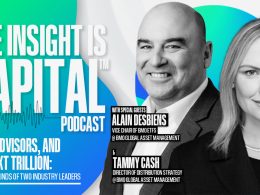Investment Outlook
by Howard Marks, Oaktree Capital
January 2013
Here’s how I started Whad’Ya Know in March 2003:
I always ask Nancy to read my memos before I send them out. She seems to think being my wife gives her license to be brutally frank. “They’re all the same,” she says, “like your ties. They all talk about the importance of a high batting average, the need to avoid losers, and how much there is that no one can know.”
The truth is, anyone who reads my memos of the last 23 years will see I return often to a few topics. This is due to the frequency with which themes tend to recur in the investment world. Humans often fail to learn. They forget the lessons of history, repeat patterns of behavior and make the same mistakes. As a result, certain themes arise over and over. Mark Twain had it right: “History doesn’t repeat itself, but it does rhyme.” The details of the events may vary greatly from occurrence to occurrence, but the themes giving rise to the events tend not to change.
What are some of my key repeating themes? Here are a few:
• the importance of risk and risk control
• the repetitiveness of behavior patterns and mistakes
• the role of cycles and pendulums
• the volatility of credit market conditions
• the brevity of financial memory
• the errors of the herd
• the importance of gauging investor psychology
• the desirability of contrarianism and counter-cyclicality
• the futility of macro forecasting
Most or all of these have to do with behavior that’s observed in the markets over and over. When I see it recur and want to comment, I’m often tempted to dust off an old memo, update the details, and just insert the word “ditto.” But I don’t, because there’s usually something worth adding. Cycles
One of the most important themes in investing – and one I often find worthy of discussion – relates to cycles. What is a cycle? Dictionaries define it as “a series of events that are regularly repeated in the same order” or “any complete round or series of occurrences that repeats or is repeated.” And here’s the definition of the term “business cycle”: “The recurring and fluctuating levels of economic activity that an economy experiences over a long period of time.”
You may continue reading or download in the slidedeck below:
Howard Marks - January 2013 by
Copyright © Oaktree Capital










